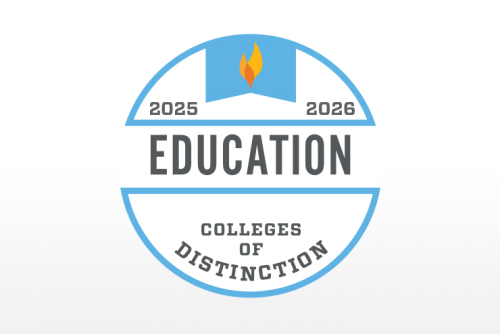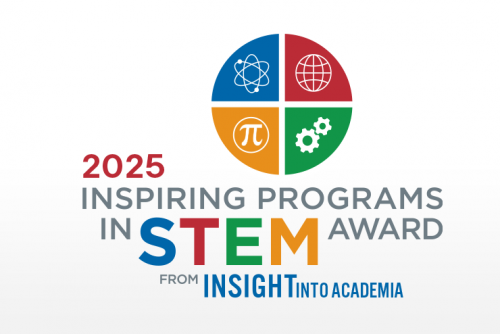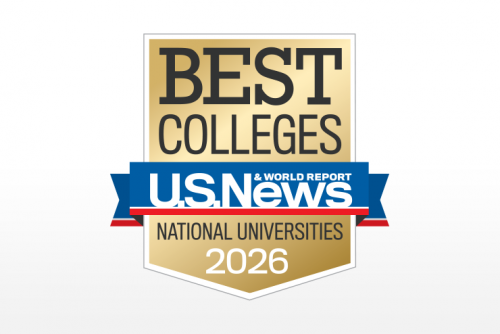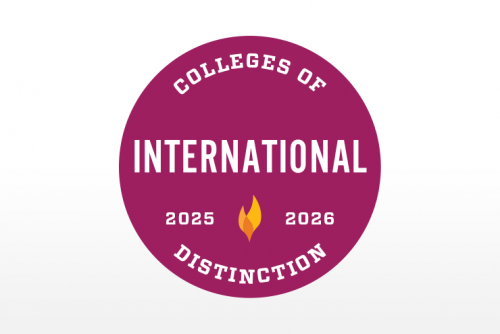
For three consecutive years, the Adelphi University Ruth S. Ammon College of Education and Health Sciences online master’s degree in education programs have earned a spot in the U.S. News & World Report best online rankings.
Transform your teaching career—and your students’ lives—through the power of technology, whether you’re seeking initial certification or another credential to add to your résumé.
Technology is playing an increasingly critical role in education, and schools across New York state need teachers who can keep up. Take advantage of this demand with an MA in Technology Education. Aspiring and veteran teachers alike will gain the skills to build learning environments that foster creativity, critical thinking and problem-solving. Under your instruction, students will develop the technological fluency they need to succeed in the 21st-century workforce, studying everything from robotics and engineering design to manufacturing and computer programming.
The technology education graduate program offers three degree tracks. If you’re looking to launch your teaching career, the preservice track leads to New York state technology education teacher certification for grades K-12. For teachers who already have initial certification, the in-service and advanced certificate tracks offer an affordable, accessible pathway to career advancement.
Graduates of the technology education program will be well positioned for a variety of roles in the education field, including:

For three consecutive years, the Adelphi University Ruth S. Ammon College of Education and Health Sciences online master’s degree in education programs have earned a spot in the U.S. News & World Report best online rankings.
This program bridges the gap between cutting-edge technology and effective teaching, preparing educators to inspire the next generation of engineers and innovators.
 Emily Kang, PhD
Associate Dean for Academic Affairs, Ruth S. Ammon College of Education and Health Sciences
Emily Kang, PhD
Associate Dean for Academic Affairs, Ruth S. Ammon College of Education and Health Sciences
Designed for students with a bachelor’s degree in a technology-related field but without prior teacher certification. The program includes 6 credits of content electives, 18 credits of pedagogical core and 6 credits of student teaching.
Designed for students with a bachelor’s degree who already have initial teacher certification in another subject area. The program includes 15 credits of graduate electives and extensive practicum experience.
Designed for master’s degree-holding educators who have initial teacher certification in another subject area and undergraduate experience in technology-related fields. The program includes essential methods courses, content electives and a practicum.
At Adelphi, we believe hands-on experience is key to setting our students up for career success. We also believe in providing students with a well-rounded education, with extensive training in both analog and digital technologies. Our curriculum in the tech education program pairs instruction in authentic fabrication—including heritage trades like woodworking, welding and machining—with a deep dive into robotics programming, CAD/CAM design, CNC manufacturing, 3D printing projects and more.
If you’re within commuting distance of Adelphi, you’ll be able to apply your knowledge to the classroom through field experiences and student-teaching placements. As part of the practicum, you’ll work directly with the K-12 population on exciting engineering-design challenges and technology projects, creating inspiring learning environments where students of all abilities can thrive.
All candidates must submit the following:
All applicants must demonstrate a commitment to technology education and pass background checks required for school placements. However, each program has specific requirements for admission:
Applicants with 9-plus technology credits who can complete deficiencies during the program are eligible for conditional admission.
Learn about the costs you can expect, and discover how scholarships, grants and financial aid packages can put an Adelphi education within reach.
Technology education covers several main areas of classroom education, including communications technology, construction technology, manufacturing technology, transportation technology and energy/power systems. Students learn both the theoretical foundations and hands-on applications of these technological systems. A distinguishing feature of technology education is its emphasis on experiential learning. With a master’s degree in technology education, you’ll have the training to lead students in design challenges, build prototypes, use various tools and materials, and learn through making and creating rather than just theoretical study.
A master’s degree in technology education significantly advances teaching careers by opening doors to leadership roles (department head, curriculum coordinator, STEM program director). The advanced degree enhances teaching capabilities through deeper content knowledge of emerging technologies and research-based pedagogical strategies. With growing emphasis on STEM education, the master’s degree provides job security, competitive advantage in hiring, and often fulfills requirements for professional certification and tenure eligibility, typically paying for itself within three to five years through salary increases alone.
Educational Technology, commonly shortened to EdTech, is a program focused on how to use technology as a tool to enhance teaching and learning across all subjects. An example would be how schools can integrate computers, tablets, software, apps and digital platforms into the existing curriculum.
Technology Education is a program focused on teaching about technology itself as a subject area. For example, students would analyze how technology works, design processes, engineering principles and technological systems.
Focus: Using technology as a tool to enhance teaching and learning across all subjects
Focus: Teaching about technology itself as a subject area
At Adelphi, our Technology Education program is one of the top in the state of New York for a variety of reasons, including:
Comprehensive Content Alignment—The program directly aligns with New York State Technology Education Content Specialty Test requirements and covers emerging technologies like cybersecurity, augmented/virtual reality, and biotechnology integration.





